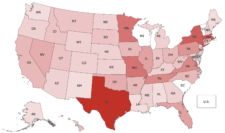 It’s the time of year when many states have either ended their legislative sessions or are preparing to adjourn sine die in the next month or so. We’ve also passed the point in most states when new bills can be introduced or existing legislation that hasn’t passed out of the body in which it was introduced can be considered in the opposite chamber.
It’s the time of year when many states have either ended their legislative sessions or are preparing to adjourn sine die in the next month or so. We’ve also passed the point in most states when new bills can be introduced or existing legislation that hasn’t passed out of the body in which it was introduced can be considered in the opposite chamber.
Nevertheless, several noteworthy public notice-related bills we’ve been following did see some movement last month.
Most importantly, bills in Arizona and Iowa authorizing local governments to publish notices on government websites instead of newspapers were significantly amended before they passed their original chambers.
Trends emerge in public notice bills
 It used to be a relatively rare event when a bill remedying errors or omissions in public notice advertising was introduced. Or when legislation authorizing newspaper websites or e-editions to substitute for print was proposed. But those types of measures have proliferated in 2023, along with bills designed to fill jurisdictional holes in news deserts, which have been picking up steam for a few years now.
It used to be a relatively rare event when a bill remedying errors or omissions in public notice advertising was introduced. Or when legislation authorizing newspaper websites or e-editions to substitute for print was proposed. But those types of measures have proliferated in 2023, along with bills designed to fill jurisdictional holes in news deserts, which have been picking up steam for a few years now.
Ill-considered Florida bill on the move
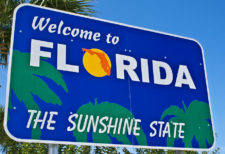 Good news: By March 1, 2021, bills had been introduced in 20 states that would have moved all public notice, or a significant percentage of it, from newspapers to government websites. A year later we’ve seen similar legislation in only six states.
Good news: By March 1, 2021, bills had been introduced in 20 states that would have moved all public notice, or a significant percentage of it, from newspapers to government websites. A year later we’ve seen similar legislation in only six states.
Bad news: The bill in one of those states — Florida House Bill 7049 — is a serious threat to become law. HB-7049 passed out of committee last Monday and is expected to be approved by the full House sometime this week.
So the battle over public notice in Florida comes down to the Senate, as it has in the past.
Public notice in Florida in peril once again
 Our original headline for this story was “Newspaper notice off to good start in 2022.” But late last night we learned that Florida — a state that last year passed a progressive bill paving the way for the eventual migration of statutory notice to newspaper websites — was in play once again.
Our original headline for this story was “Newspaper notice off to good start in 2022.” But late last night we learned that Florida — a state that last year passed a progressive bill paving the way for the eventual migration of statutory notice to newspaper websites — was in play once again.
We haven’t had time to digest the 40-page bill, but it’s clearly designed to undo the work that went into last year’s historic legislation by moving public notice to government websites. The committee bill passed out of the Judiciary Committee this morning with GOP backing on a straight party-line vote.
Legislative Front Still Calm
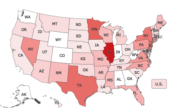 The first quarter has ended and the legislative front remains relatively calm. Missouri is still the only state in immediate peril of passing a major public notice bill, but even there newspapers are beginning to see light at the end of the tunnel; the two measures that have given public notice advocates in the Show Me State cause for concern didn’t budge last month.
The first quarter has ended and the legislative front remains relatively calm. Missouri is still the only state in immediate peril of passing a major public notice bill, but even there newspapers are beginning to see light at the end of the tunnel; the two measures that have given public notice advocates in the Show Me State cause for concern didn’t budge last month.
Many bad public notice bills still litter the committees of the 30+ state legislatures that haven’t adjourned yet, but none appear to have any momentum. Nevertheless, several minor bills — some that add newspaper notice and a few that reduce it — have passed so far this year. Here’s the round up.
Missouri Only State in Present Public Notice Peril
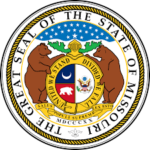 An election year? A surge in passion for government transparency? A growing admiration among state legislators for their local newspapers? Whatever the reason, the state of public notice in the U.S. remains unseasonably calm for this time of the year.
An election year? A surge in passion for government transparency? A growing admiration among state legislators for their local newspapers? Whatever the reason, the state of public notice in the U.S. remains unseasonably calm for this time of the year.
Lots of public notice-related legislation has been introduced — PNRC is tracking more than 200 bills — but so far most of it hasn’t gone anywhere. There have been pockets of activity over the last month, however. Here are the highlights.
State Legislatures Back; Public Notice Safe for Now
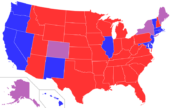 The New Year again brought with it a flood of new legislation curtailing the role of newspapers as the official source of public notice. Fortunately, none of the new bills appear to be an immediate threat and several have already been killed in committee or face imminent demise.
The New Year again brought with it a flood of new legislation curtailing the role of newspapers as the official source of public notice. Fortunately, none of the new bills appear to be an immediate threat and several have already been killed in committee or face imminent demise.
Here’s an overview of some of the states that have been most active since legislatures returned to work.
